The Hope Inside With Catherine Hammond
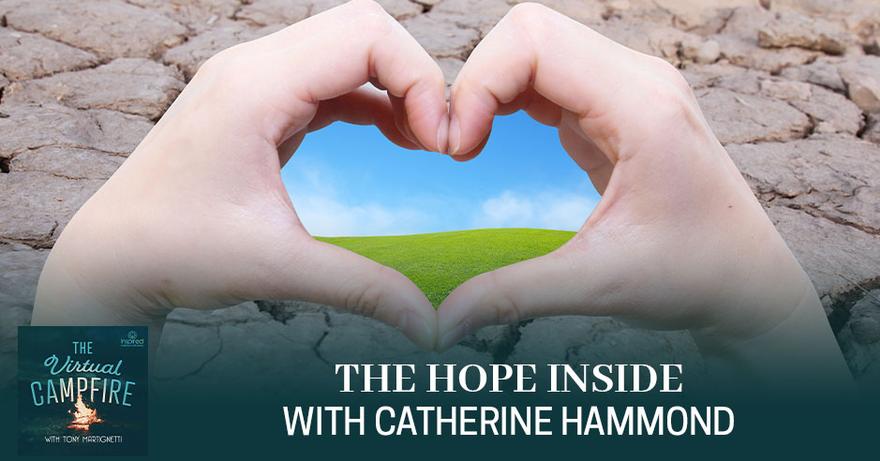
Hope is not external. It comes from inside all of us. That’s exactly the message that Catherine Hammond shares in today’s episode. Catherine is an award-winning attorney, a transformational coach, and is also on her way to becoming a published author. She joins host Tony Martignetti to discuss hope and how she discovered it amidst all the trials and tribulations thrown her way. She talks of hope as something not dependent on circumstance but rather as an inner wellspring. Catherine also emphasizes the importance of sharing the load and what it truly means to be a good leader. Learn how you can choose to have hope rather than searching for it somewhere else.
---
Listen to the podcast here:
The Hope Inside With Catherine Hammond
It is my honor to introduce you to my guest, Catherine Hammond. She is an award-winning estate planning attorney, public speaker, author and life transition guide. As an attorney, she helps people plan for and walk through difficult seasons in life, including chronic illness, disability and death. As a transformational coach, she leads people into living more fully, bravely and beautifully. The heart-wrenching experience of her mother's journey with Alzheimer's disease, beginning when Catherine was still a teenager, inspired her to spend her life helping others navigate life's challenges both legally and emotionally. Catherine is writing her second book tentatively titled Hope-Less. She lives in Colorado Springs where she loves hanging out with her three granddaughters. Welcome to the show, Catherine.
It’s good to be around the fire with you, Tony.
I love this feeling of warmth that comes from the analogy of the fire because that's what these conversations bring, at least I hope, to the readers. Thank you for coming. As you may have heard, we talk about what's called flashpoints here. Flashpoints are moments in your life that ignite your gift to the world. I want to give you the space to share your story and along your way of telling that story, we're going to stop and see what comes up and reflect on that. Share what you’re called to share. I'd love to know how you've gotten to where you are today and all the amazing things that you're doing.
When I think about flashpoints, there is a lot for me but there are maybe a few that stand out. The first one is I had a rather difficult childhood. Neglect, abuse and a lot of things going on in my home in my life that weren't a lot of fun. The first flashpoint that I think of was when I was about to turn sixteen years old and I got in yet another fight with my mother. I decided that I was going to move out and go live with a friend of mine and her family. I can see now that what I was doing and you'll hear this some more in my story, I felt like my life was hopeless.
That was the first time that I remember going out and deciding I was going to go find hope. I marched out the door with all of my stuff, moved in with my friend and her family and had a wonderful experience. In a year, I came back without a lot more hope than what I had originally found there. I discovered that the hope I was looking for didn't happen to be where I had looked that year. I kept looking and searching through a lot of relationships but then when I was 22, I got pulled back.
Hope is the single best predictor of a life well lived.
As I'm out trying to create a life and hope and great relationships, my mother was descending into Alzheimer's disease. Right at the time when I had graduated college and was ready to do my thing, there came a point when the doctors said that my mother could no longer live on her own and she needed to move into a nursing home. My job became going through the legal process to take care of her and then getting her moved out of her house, cleaning out her house and doing all of the things to then start taking care of her. That felt heavy to me because she had never been able to take care of me. She was clinically depressed and suicidally depressed through all of my growing-up years. I felt stuck taking care of this woman who hadn't been able to mother me and I was resentful. I took care of her and I kept looking elsewhere for the thing that was finally going to fix my life and bring me hope.
The third and maybe final flashpoint for me was when I had started this estate planning law firm and I've done well professionally. Everything that I've done, I've done well. I started this law firm to help people the way that my lawyer had helped me. Nobody told me when I signed up for this that the business was a roller coaster. I thought you do the right thing, do it well and all will go hunky-dory. There came one day, in particular, when I couldn't make payroll for my team of thirteen. I found myself laying on the office floor convinced that the only option for me was to take my own life. It was not the first time that I had thought about that. I had thought about that many times starting at age fifteen. It was a turning point for me because I didn't take my life.
I realized something going through it that it's never as bad as I think it is. What I did that day is I promised myself that I would wait one day. Sometimes, you go to sleep and things are better in the morning. I thought I'll give it one more day. The next day, it didn't feel quite so bad. It wasn't until a couple of years later when I was reading Man's Search for Meaning by Viktor Frankl that I realized that what had been going on with me in all of those flashpoints was a misunderstanding about hope. What it is and where it comes from. I kept thinking that if I had the right relationship, business, job and all the right things in my life then I would have hope. Have you read Man's Search for Meaning?
A couple of times. It's a fantastic book.
I'm reading about him being in the concentration camp and still experiencing hope, it struck me that I had been completely misunderstanding hope and believing what I would call lies that we have put forth as a society about what hope is and where we get it. That has changed things for me so I no longer see hope as something that I have to go get somewhere. It's something that I have access to any time that I choose to access it.
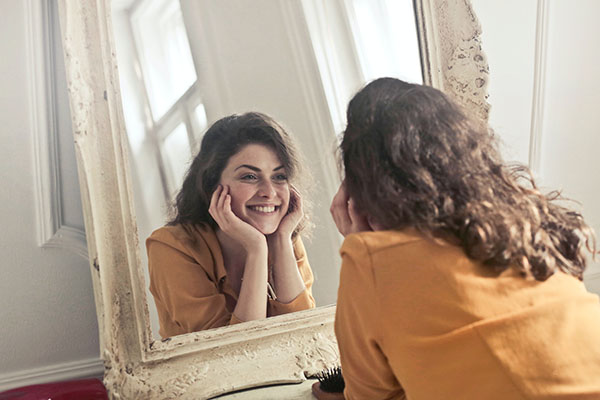
I want to dig deeper into that. Let's move forward. I want to reflect back on some of the things that you've touched on. It's powerful to think that you got into a field that was geared towards something that you went through around your mother, somebody who you resented at times. That resentment ended up turning into something powerful. I'd like to know your thoughts on how did that resentment turn into hope when you think about it? You transformed resentment.
Thanks for reflecting that back. I hadn't thought of it quite that way before. I had resentment and yet, I chose to keep showing up. It was showing up in the moments where I was able to be present with her and present with the situation. When she was first diagnosed, I'm 22 years old and I want to live my life. The biggest loss for me was not what was happening to her medically. The biggest loss for me was now, I'm never going to have the mom that I always wanted to have. Being present with that situation, with not having a mom and eventually, over time, coming to accept that. The thing that I have seen that I do naturally, at least if you give me some time, is reframe things. I am constantly looking for how I can create something beautiful in the midst of what is because we always have that opportunity.
There's something powerful around that beautiful reframe that you are able to create because it is a powerful shift. The pivot that you created around that and the flashpoint is being able to turn a soured relationship and reframe it into something powerful to move forward. That's what you did. That is a power to move you forward. I see that and I say, “That's a reframe that not everyone could handle and not everyone could see.” There are elements of like guilt and feelings of like, “Why should I care about her? She didn't care about me. I'm now going to move forward without the worry.” Now you're able to see that and say, “This is how I'm going to take that and move forward as a positive.” You can answer this is because you are the hope expert. Is the connection to hope is to see that as a positive in that situation?
First, the only reason why I am the hope expert is that I was such an expert at thinking that I didn't have it for so much of my life. I do think that there's a connection but I don't know where I got that. That was one of the big questions for me in life, Tony. I didn't choose to be exactly the human that I am. Somehow, I am this person who does that, who looks for the beauty, the opportunity and what I can create that will make the world a more beautiful place. Some of that is because of all the trauma that I've been through starting from when I was a little girl. Some of it is what I did learn from my mom. She was a beautiful human being and would have given the shirt off of her back to anybody. Some of it is who I was created to be.
I'm thinking about the nature versus nurture argument. There's something about who you are at your core that has shined throughout but then parts of your environment have been fighting you all the way through, trying to make you not believe the things that are powerful and not to believe in hope. Who you are at the core seems to always be saying, “You got to believe in hope. This is who you are.”
Hope does not live out there in the circumstances.
Adversity does that for us. It either causes us to blame and become angry or to choose something else. Adversity shines a mirror on us to see what's going on. We have a choice every time we go through adversity about whether to shrink back, go inward, isolate ourselves and be angry or step up to the next level and find and create something better.
I want to get back to this. There's something that I see as a theme a lot around entrepreneurs. They tend to have real challenges when it comes to getting a business up and running and being that overachiever, thriving to make something powerful happen but there's a downside to that. There's a dark side to being an entrepreneur. There's a lot of weight on the shoulders of entrepreneurs and I think that played out strong in your story.
Many entrepreneurs have carried that. I'm an Enneagram 2. What I want to do is take care of everybody else. For me, there's nothing worse than being in a situation where I can't take care of people in the way that I'm supposed to. That's a process of growth. As entrepreneurs, we start with stars in our eyes and all these grand dreams about what it's going to be like and what we're going to do and then we have to become friends with the way that it works. My team doesn’t need me to fix everything for them or carry them. We're on this journey together. If I did fix everything for them or carry them, they would be missing out on their growth and I have to remember that but it's taken me time to get there and to become okay with not being able to carry the world perfectly.
Many great leaders take a long time to realize that and see that you're not carrying a team. You're carrying load together like carrying the weight together. When you try to be the one who carries the weight for them, it's not serving anybody.
That's such a great analogy because if we were carrying weights and I carried all the weights then I would be the only one who's strong and they wouldn't be. I want them to be strong too.
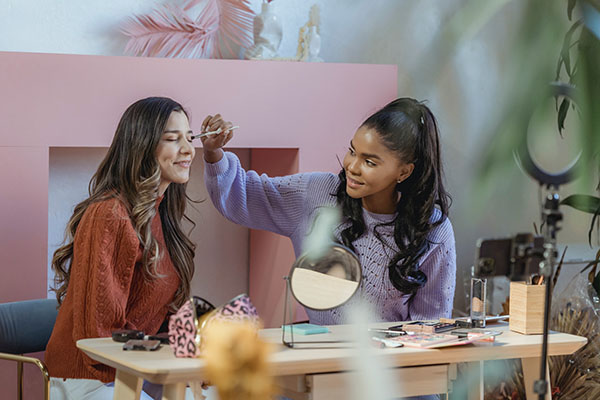
The thought process around that is powerful because it's about making people better when they come to work. You're creating an environment not just for the work to get done but for people to thrive. That's a powerful thing. With the work you're doing, what a great purpose. You are doing something that's a powerful thing in the world. It's amazing.
Part of it is selfishly healing for me. As I think about what you asked about going from resentment to contribution from that place, the ability to create and contribute in that area where I had so much pain is itself healing. That’s part of the act of healing myself.
I think of the saying that our wounds are our strengths and that's what played out for your life. You created a place where you were able to use the wounds that you inflicted along the way. You created a way to make that into a strength that truly is amazing for the people who come along into your business and you're able to help them see that they're not alone in the struggle they're going through. I want to talk more about the work you're doing around hope and the book that you're heading towards. What is driving you towards the book and the reason for putting this beautiful piece of work into the world?
I have spent probably ten years thinking a lot about hope. I have discovered some things that get in the way of many of us. When I talk about the word hope, I'm talking about the opposite of hopeless, desperate, depressed and suicidal but I'm also talking about that smaller thing that is a necessary part of every one of our lives. As I think about hope, I think about something that other people call happiness, inner joy, contentment, peace and optimism. All of those things are what I would call hope.
There are many studies that have shown that the single best predictor of a life well-lived is hope. I've discovered some things because I spent so many years thinking that I didn't have hope, that I found to be helpful to other people when they are not feeling hopeful, at peace, joyful or any of those things. We were all looking for that sense of meaning or purpose in life. That gives me a sense of meaning and purpose around what for years felt like a lot of hardships in my life to be able to use those to contribute something to other people's wellbeing. That's the ultimate for me. I can't not do it.
Everything we don’t do becomes a life that we will never live.
I love how you said that you can't not do this because now you've discovered this, it is something that's so powerful. It's such a great concept that its time has come. It's great that you're putting this out there. The message is powerful for me. When I heard you start talking about this, I've resonated with this idea because it's such a powerful thing that needs to be put out in the world and people need to hear it. One of the things I would like to ask is that of all things, what is the message that you feel like people need to know if they're reading this and they're saying, “I don't feel like I have hope. How do I create hope in my world if I'm feeling like there's nothing?”
That's so important anywhere from the person who is feeling no hope, as in suicidal to the person who feels no hope for getting into the career that they want or no hope for this marriage ever working out and turning around. We need hope for all of those things. The key thing for me has been the discovery that hope does not live out there in the circumstances. The dictionary definition of hope makes it sound like it's based on our circumstances. If our circumstances look good then we can have hope, which makes us victims in the world.
What I have discovered to be true about hope is that it is an inner wellspring. It's inside of me. It's accessible at any time in any circumstance. Because it's an endless wellspring and it’s always flowing, I can tap into it anytime that I choose to. When I'm feeling disconnected from it and I don't feel hope, it's not because there isn't hope. There is no such thing as hope going away. It doesn't go anywhere. There's only disconnection from it. We can choose to be disconnected from it or we can choose to connect to it and we have that power. Even when we receive the cancer diagnosis, our spouse leaves, don't get the job or our bank account hits zero, we can still experience a sense of wellbeing no matter what is going on out there in our circumstances.
I'm hearing you say this and I think to myself of the scenarios that play out where someone can say, “I've got a diagnosis of cancer. I'm going to make the best of what I have. I don't know what I have but I'm going to try and put on that face of like, ‘This is how I'm going to live my days and I'm going to make it the best day today that I can make it.’” For me, that's hope. It’s seeing it as the best possible situation you can make of a bad situation or something you can't control. You can't control the uncontrollable. You can control certain things but saying, “This is what I have. I'm going to put on a happy face and see what happens.”
In that scenario, for somebody with a cancer diagnosis, what we can control is our experience. We can't control necessarily what happens with cancer but we can control our experience. It's interesting when you mentioned cancer there, I think about one of my dearest friends on the entire planet who was diagnosed with aggressive leukemia. She got into MD Anderson. I flew down there and I was her primary caregiver for a few weeks. There was one particular day when she was released from the hospital to come to live at the apartment that I had prepared for her. I love her to death and she was the single most demanding human being I've ever known.

She got out of the hospital and she needed this, that and the other thing. Every five minutes, she would give me 25 more things that she needed me to do. At the same time, I had walked away from a vacation in Italy to come to be with her but the friends that I had invited on a vacation were still on vacation. I woke up this first morning that she was in the apartment and I looked at my phone. I watched all the pictures of my friends on my Italian vacation. I sat there feeling a little bit sorry for myself that I was not on the vacation, that my friend was desperately ill and that my life felt hard that day.
I did something for the first time that day. I had a set of affirmations. The last thing that I read out loud was, “Today, I will create the best day of my life.” I read that and then I said out loud, “Shoot. If I'm going to create the best day of my life on this day, it's clearly not going to happen for my circumstances.” I took the time to get in touch with what my heart wanted that day. It was the first time I had ever done something like that with real intentionality. I knew that I wanted to experience beauty.
While she was at the doctor’s that afternoon, I went to the art museum and saw the one Van Gogh painting that they had. I wanted to experience a deep connection with somebody. We had been friends for years talking almost every day. We had a conversation about stuff that she had never shared with me before. I felt more connected to her than I had in my entire life on this day that had started out feeling less than ideal. It was my proof that I do get to decide what my experience is going to be.
That was a beautiful story. It modeled the way of how to create that experience. When you feel as though it's almost selfish, you say to yourself like, “This day is not going to turn out great.” You can turn it around and make that into something more of a beautiful situation. It comes back to the term we said. It’s the beautiful reframe of how you look at things.
Creating beauty in the midst of what is, is living hope. There hasn't been a time in my lifetime that I'm aware of when, globally, we've needed hope more than we do. The pandemic is a backdrop for most of us on a life that already has its ups and downs. Somebody dear to me lost her father and people lose their jobs. There are all kinds of stuff going on with the pandemic in the background. Accessing hope and knowing that we can feel hope is vital to get through this.
Hope is the spark that carries us through life.
I've got a smile on my face because I feel like you warmed my heart with this feeling of hope. That's amazing that you have this gift to share. Before we head into the back end of this, I wanted to ask, is there anything else you want to share, any thoughts or lessons that you feel are important to get out into the world?
The thing that feels most present for me is that cultivating hope is a daily practice. Every little thing that we do can add to hope. When we're not feeling hope, we pull back from the conversation, we hold back from saying the hard thing to our spouse, we don't start the business or don't do whatever it is because we don't feel the optimism or the hope, every little thing that we don't do becomes a life that we will never live. Our marriage can never be what we dream of if we don't act in faith and hope and have that conversation. Our business will never be if we don't take that step.
I went out for the gymnastics team when I was in junior high school. A little-known story, I never competed in a single gymnastics meet. I went to practice almost every single day but I was scared and sure that I was not enough. Every single week when there was a meet, I made up an excuse not to compete. You never become a gymnast if you don't show up. We all need hope. It's that spark that carries us through life. It's about cultivating it and finding the things in our own little personal hope toolkit that will allow us to experience hope.
One last question for you, what is one book that has had an impact on your life and how you think?
Man's Search for Meaning had a big impact but I'm going to add in another one that I read called Grace in Dying by Kathleen Dowling Singh. Death is something that none of us are excited about. Most of us try to keep at a distance. Reading this book, she had worked as a hospice chaplain for many years and had been present with many people through their dying process over months or days or hours. It changed my view on the dying process and I came to see it as a path of return. It's not an end. It's a returning. It helped me to start to feel hopeful about dying. It's not the end of who I am. Energy cannot be destroyed. It can only be transmuted. Our life energy does not get destroyed. That book was a powerful one both for the clients that I work with and for myself.
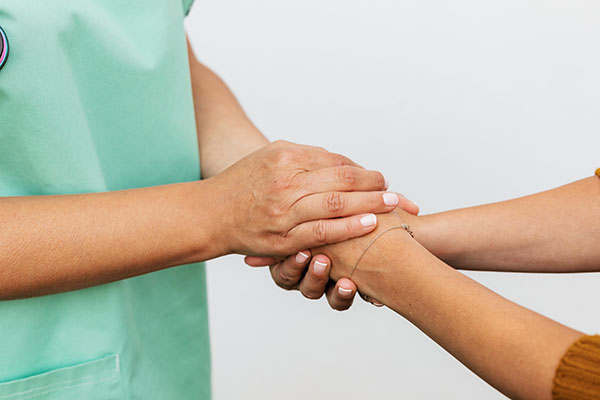
That's ending on a powerful note. First of all, that book sounds amazing. I want to check that out, for sure. I’ve never heard of it before. That is such a powerful thought that I want to explore further. Thank you for sharing that. Thank you for all the things that you've shared, your story and all the insights. I cannot wait until your book is finished and ready. Thank you for coming to the show and sharing all this.
Thank you, from the bottom of my heart. Every conversation with you is beautiful, deep and heartfelt.
Thank you, Catherine. You're too kind. I also want to give people a place where they can find you. Where can they find out more information about Catherine?
More information about Catherine and hope at CatherineHammond.life.
I also want to thank the readers for coming on this journey with us. I know you're walking away with some amazing insights and some things to maybe dig deeper into. Hopefully, you're feeling more hopeful because I know I am. This has been a powerful time to spend with Catherine. Thank you.
Important Links:
About Catherine Hammond
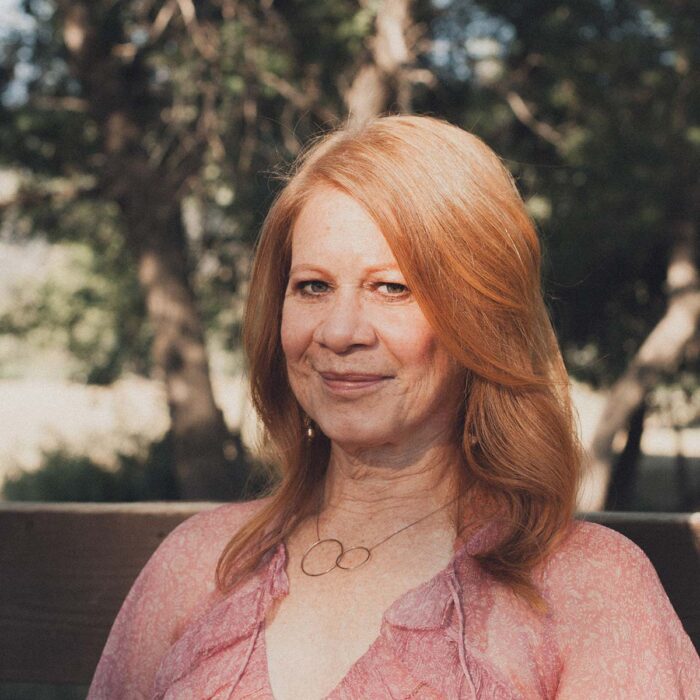 Many people know me as the award-winning estate planning attorney and transformational coach who serves her community from the heart, building relationships that make clients feel like family. What most people don’t know about me is that I started the law firm at my kitchen table in 2005 while I was a single mother. I refinanced my house to create just $12,000 of seed money in order to start it. Everybody told me I was undercapitalized, but I was on a mission to help people.
Many people know me as the award-winning estate planning attorney and transformational coach who serves her community from the heart, building relationships that make clients feel like family. What most people don’t know about me is that I started the law firm at my kitchen table in 2005 while I was a single mother. I refinanced my house to create just $12,000 of seed money in order to start it. Everybody told me I was undercapitalized, but I was on a mission to help people.
What you probably also don’t know is that the journey has been a challenging one. A traumatic childhood, being a caregiver for my mother with dementia starting at age 22, divorce, the loss of people dear to me, foreclosure proceedings on my house while I was a single mom, and caring for multiple loved ones with terminal and life-threatening challenges.
Through most of these challenges, I tried to hold it all together on the outside, even as I was falling apart on the inside. I have truly had the highest highs and the lowest lows that I can imagine squeezing into one lifetime.
Through every struggle, life has brought the way I’ve found a way to thrive on the other side.
There are many things that I’m proud of: raising my two daughters and watching them become beautiful humans. Being Mimi to three amazing granddaughters. Guiding an untold number of people through planning for and navigating their own challenges including illness, end-of-life decisions, and death.
They call me the Hope Whisperer.
Love the show? Subscribe, rate, review, and share! https://www.inspiredpurposecoach.com/virtualcampfire


0 comments
Leave a comment
Please log in or register to post a comment